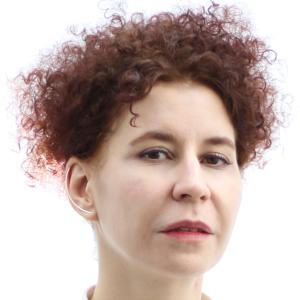Perestroika and the Production of History: Agents, Discourses and Public Reception
The project explores the veritable “explosion” of history unleashed by the policy of glasnost’ and inquires into the roots of its failure to establish a genuinely public history and to critically engage (in ways accessible to the broader public) with the questions of state power, political culture and violence as legacies of the Soviet regime. Why was the public obsession with Soviet history and in particular, the legacy of Soviet terror, so short-lived, the inquisitive and moral impulse at its core all but exhausted by the mid-1990? Who were the main agents “producing” history that affected public imagination at the time and what were the discursive, institutional and methodological properties of their narratives? What aspects of the Soviet history were marginalized and overlooked? And finally, what can be learnt about the public reception of these narratives and the many ways in which society engaged with, resisted or produced its own renditions of the increasingly volatile past?
The loosening of censorship in late 1988 enabled numerous discussions of the tragic aspects of the Soviet past spilling into every public and artistic forum imaginable, from the media to literature, film, theater and television, to local historical societies, and commemorative movements. What distinguished this new attempt at de-Stalinization from the one undertaken during Khrushchev’s reign was the growing role of the dissidents in setting the historical agenda during Perestroika and in theorizing and practicing glasnost’. By the late 1980s the dissident interpretation of Soviet history had been deeply entrenched in the historical imagination of the intelligentsia, with the works of Solzhenitsyn and (albeit to a small extent) Grossman setting the terms for much of the discussion. These debates were polyphonic and largely inherited the ideological divisions within the (anti-)Soviet dissent that crystalized both in samizdat and tamizdat in their attitude to Stalinism, Leninism, the relationship between the two and the workings of Soviet terror. But there was much more to samizdat and tamizdat than deliberations of democratic alternatives to totalitarianism. They also brought to the fore a variety of imperialist, quasi-fascist, anti-Semitic “patriotic” discourses, each advancing their own interpretation of Soviet history, with Igor Shafarevich, the author of Russophobia, its principal ideologue that flourished during Perestroika. While professional historians remained conspicuously peripheral to the public engagement with the Soviet past, their authority severely undermined by the years of catering to the communist ideology and increasingly obvious methodological inadequacy, the vacuum was filled with a plethora of misguided pseudo-scholarly theories, such as Anatoly Fomenko’s “new chronology”, Edvard Radzinsky’s “mysteries of history” or Viktor Suvorov’s revisionist interpretation of WWII. This polyphony failed to produce a lasting public engagement with history and a cohesive de-Stalinizing narrative with a solid factual and ethical core, but its spillover did seem to infiltrate both academia and public discourses shaping much of subsequent ideology-driven (ab)uses of history.
Kseniia Poluektova-Krimer forscht als Gastwissenschaftlerin seit Sommer 2022 am ZZF in der Abteilung Kommunismus und Gesellschaft; seit 1.12.2023 mit einem Sacharow-Stipendium und seit 1.10.2024 im ERC Projekt / Kseniia Poluektova-Krimer has been conducting research as a Visiting Fellow since summer 2022 at the ZZF in the Department I Communism and Society ; since 1.12.2023 with a Sacharow-Scholarship and in the ERC project since 1.10.2024.
